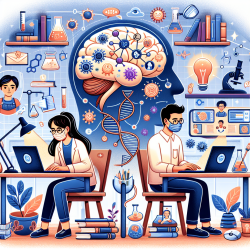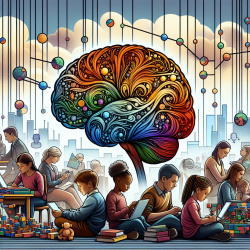The field of genetics has recently made significant strides in understanding the complexities of intellectual disabilities (ID), particularly through the study of X-linked intellectual disability (XLID). A groundbreaking study titled "X-exome sequencing of 405 unresolved families identifies seven novel intellectual disability genes" has identified seven novel genes associated with XLID. This discovery not only advances our knowledge of the genetic underpinnings of ID but also opens new avenues for educators and therapists to tailor their approaches to meet the specific needs of students with these conditions.
The Study and Its Implications
The study employed X-exome sequencing on 405 families previously unresolved in their genetic diagnosis of XLID. The researchers identified seven new genes—CLCN4, CNKSR2, FRMPD4, KLHL15, LAS1L, RLIM, and USP27X—that play crucial roles in cognitive function. Additionally, they highlighted two candidate genes, CDK16 and TAF1, which may also contribute to XLID.
This research underscores the importance of genetic factors in intellectual disabilities and suggests that systematic sequencing could resolve a significant percentage of cases previously attributed to unknown causes. For educators and therapists, this means that understanding the genetic basis of a student’s condition can lead to more personalized and effective educational strategies.
Practical Applications for Educators
Educators working with students who have intellectual disabilities can benefit from integrating these genetic insights into their practice. Here are some ways to apply this knowledge:
- Personalized Learning Plans: Understanding specific genetic mutations can help educators create tailored learning plans that address individual cognitive profiles.
- Targeted Interventions: With knowledge of the specific pathways affected by these genes, interventions can be more precisely targeted to improve cognitive functions.
- Collaboration with Geneticists: Educators should consider collaborating with geneticists and healthcare providers to gain comprehensive insights into a student’s condition.
The Role of Online Therapy Services
TinyEYE and other online therapy services can play a pivotal role in providing support tailored to these new findings. By incorporating genetic information into therapy sessions, therapists can design interventions that are more aligned with the underlying causes of a student’s challenges.
The flexibility of online platforms allows for continuous monitoring and adjustment of therapeutic approaches as more information becomes available about these novel genes. This adaptability is crucial for maintaining effective support tailored to each student's unique needs.
The Future of Research and Education
This study is a call to action for further research into the newly identified genes and their roles in cognitive function. Practitioners are encouraged to stay informed about ongoing research developments in genetics as they hold the potential to transform educational practices significantly.
The integration of genetic insights into educational strategies represents a promising frontier for improving outcomes for students with intellectual disabilities. By embracing these advancements, educators and therapists can enhance their practice and provide more effective support to their students.
X-exome sequencing of 405 unresolved families identifies seven novel intellectual disability genes










